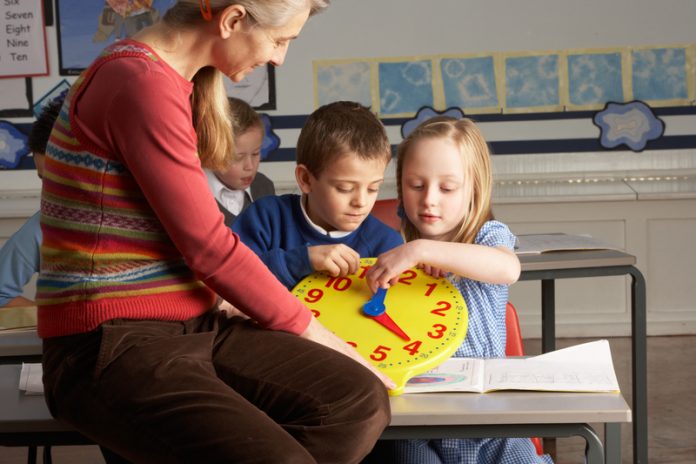Michelle Jutzi, M.A. & Prof. Dr. Katharina Maag Merki, University of Zurich discuss the role of after-school programmes in supporting student well-being and learning
According to a recent publication by the OECD, after-school programs (ASPs) have been evolving all over the world in the last decades, providing institutionalised care before school, at lunch time and after the compulsory school hours. Those reports point out that in most countries, the coverage of ASP activities ranges (with some exceptions) between 15 and 45% of the elementary student populations. Nevertheless, official guidelines, documentation and monitoring systems often vary by jurisdiction or state and therefore impede the comparison of the use and effectiveness of such programs on a national and international level.
Yet, there remains an increased demand for institutionalised care since ASPs are a reaction to changing societal, economic and family structures and are often promoted as an instrument to reduce social inequality. Accordingly, since ASPs not only provide recreational activities, but also homework support, they are often connected to the school. Therefore, ASPs are educational reform projects, which have to be integrated in the school system. So how can this integration be achieved? How can educational officials secure a well-developed after-school system, which accounts for the demands of the parents, provides activities of good quality for the children and achieve the manifold educational goals?
In a longitudinal study conducted in Switzerland, we were able to analyse these questions carefully. Schools in Switzerland usually run between 8am and 3pm, whereas many children have the afternoons off and are not supervised during lunch. The Canton of Bern (one of the 26 provinces in Switzerland) has found one first solution to this declared “state of emergency” in the lack of available hours of institutionalised care. The local government in Bern passed an amendment to the public school law that the municipalities have to assess the parent`s needs and supply this demand appropriately. According to the register data from the Canton of Bern, the development of ASPs indeed has increased by 67% in hours of care between 2010 and 2016. Studying these ASPs, we investigate how the government guidelines and other development mechanisms may influence the ASP`s collaboration with the school.
In the study, we were interested how the ASPs are organised and how after-school directors (ASD) and personnel evaluate their role and influence on student development. We argue that there are four main dimensions which need to be considered, when developing ASPs: The quality of the activities and the ASP institution as a whole, the competences and leadership behavior of the ASD, the actions and attitudes of the staff, as well as, the collaboration with the school.
Quality of the activities and the ASPs
A systematic observation in 22 ASPs points out that they vary considerably concerning the observed quality of the program and activities. Whereas some ASPs reach very good overall quality ratings, some ASPs range between minimal and inadequate quality. According to the applied School-Age Care Environment Rating Scale (SACERS), the ASPs on average reach high ratings for space and furnishing, and interactions but could improve concerning health regulations, staff development and the organisation of activities. ASDs report that most activities in ASPs are not preplanned and are more oriented towards physical activities than reflection of project-based activities.
Competences and leadership behavior
We asked 47 ASP directors about how they perceive their role and how they manage the ASPs. The most common professional role category that ASDs relate to is the “Primus inter Pares”, in which leaders have little professional distance to the team and rather position themselves at a similar status level as their coworkers. Furthermore, ASDs report that they spend most of their work-day engaged in staff management as well as organisation and administrational tasks. Quality development and evaluation is less focused in the daily practice of the ASD.
Actions and attitudes of the staff
We looked at how the ASP personnel feel about their work on a range of scales from organisational psychology. About 250 ASP staff report that the working climate concerning the interactions with students and the general atmosphere is very positive. Furthermore, they rate their collective self-efficacy as a team high and feel capable of promoting activities of good quality and deal with daily problems. Nevertheless, clear goals and guidelines for improvement and innovation are not yet main targets of the ASP and the staff is less aware of needs for improvement. Lastly, the perception of the individual capacity of engaging students in activities and leading the group of students differs considerably between the staff.
Collaboration with the school
We investigated how the ASPs take up position in relation to the school. The ASDs report that the connection to school subjects and learning goals is less important in the planning of the activities, whereas the organisation of the ASP is more oriented towards the individual needs as well as previous and practical knowledge of the students. Moreover, even though the ASP staff report that if they collaborate with the school, this mainly happens in situations of informal exchange and is seldom clearly structured or directly linked to improvement. Nevertheless, they strongly agree that the collaboration with the school should be focused on providing better learning opportunities.
What can we learn from these results?
Our study on Swiss ASPs highlights that even though the context-oriented governance strategy leads to a high autonomy of ASP personnel, it may also result in an increasing heterogeneity of the quality. When further developing ASP systems, governments and educational officials should consider how the ASP can be actively integrated in the school system. For example by supporting the empowerment of ASPs to be autonomous and innovative institutions which encourage student`s cognitive activation in recreational and learning activities. To assist ASPs in exploiting their full potential, governments should consider the following development actions:
- Joint development of guidelines and monitoring systems for ASP quality with ASP professionals and school staff;
- Encourage ASDs to develop a clearly defined role in managing the ASP and establishing strong and stable relationships with school teachers and principals ;
- Provide additional time resources to invest in quality assessment and in designing more diversified, preplanned and individualised program activities;
- Help develop a professional habitus with ASDs and staff by strengthening competences in workshops, training and coaching;
- Motivate schools to call in ASP professionals in situation where they may open up new vistas for supporting student learning and well-being.
Relating back to the OECD report, countries on average spend about 50% of the time in elementary education on language, math and science and only 5 to 20% on arts, music and physical education. For after-school programs, the question remains, whether they should mainly focus on student learning due to their proximity to the school, or – on the other hand focus on leisure activities. Should they “just” provide the students with a place to play and relax as opposed to the school? The position of the ASP in the school system is still not clearly defined and more systematic research into this topic is needed. Yet, without a doubt, ASPs are important institutions who, in collaboration with the schools and families, combine informal and formal opportunities for learning and development.
Michelle Jutzi, M.A.
Institute of Education
University of Zurich
mjutzi@ife.uzh.ch
+41 44 634 25 95
+41 79 790 28 92
Prof. Dr. Katharina Maag Merki
Institute of Education
University of Zurich
kmaag@ife.uzh.ch
+41 44 634 27 80
http://www.ife.uzh.ch/en/research/teb.html
Please note: this is a commercial profile











